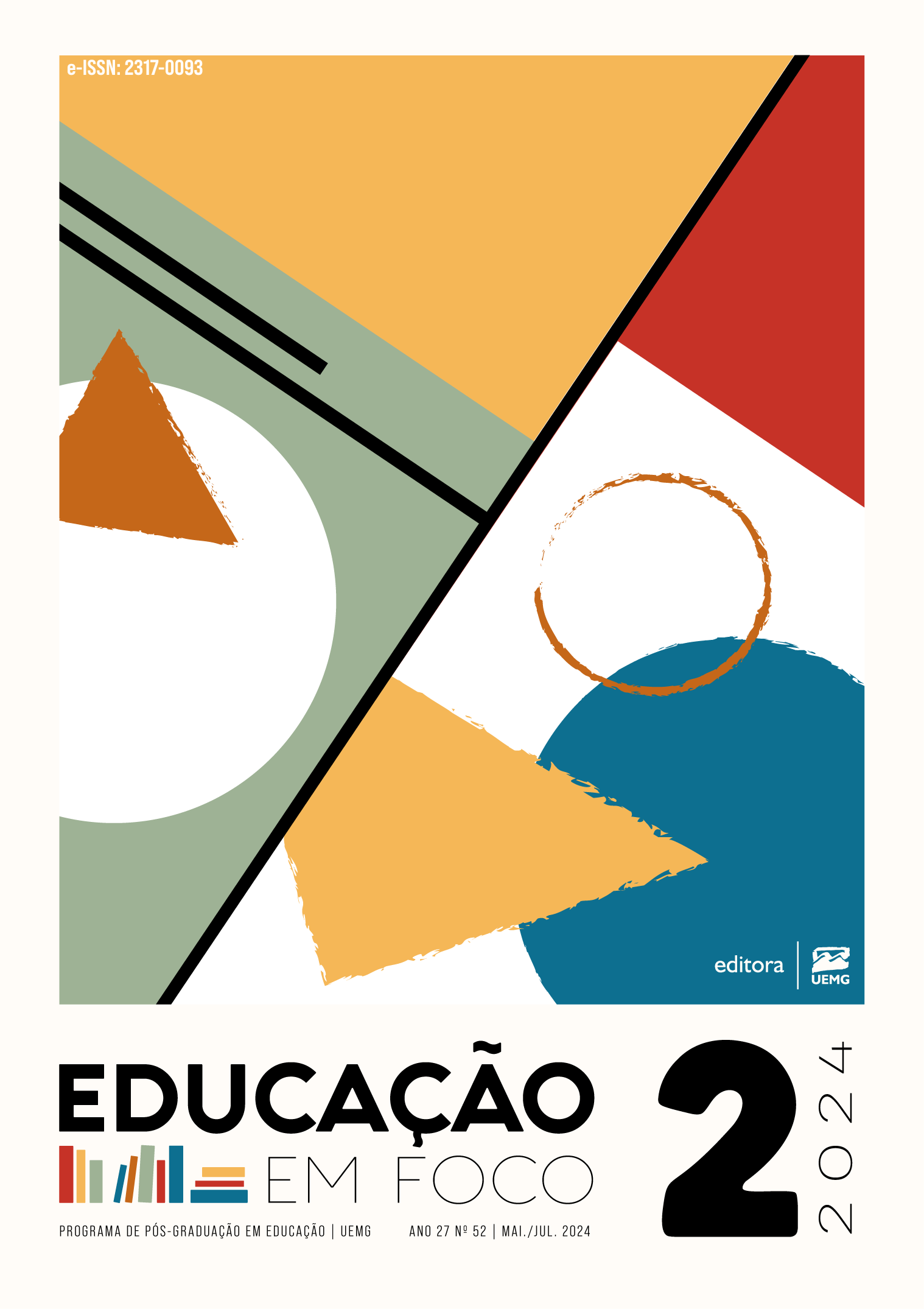Design Inteligente em uma Revista Científica Brasileira: pseudociência acadêmica
pseudociência acadêmica
DOI:
https://doi.org/10.36704/eef.v27i52.7092Keywords:
pseudoscience, creationism, evolution, scientific community, science, educationAbstract
The Intelligent Design (ID) movement suppose the evolution having been projected by some intelligent supernatural force, has spread throughout the world, despite its non-recognition by science. The starting point for the discussion is the publication of an invitation letter in a Brazilian scientific journal. It demonstrates the incoherence of this letter and how it reveals that the leading Brazilian and American exponents of this thought elaborate a deformed mixture of science and religion. It is concluded that this type of publication in an academic journal is harmful to scientific education, but it can reveal the fragility ID pseudoscientific discourse.
Downloads
References
ALVES, Fernando Everton. Theory of intelligent design. Clinical & Biomedical Research, v. 35, n. 4, p. 250–1, 2015.
AVISE, John C. Inside the human genome: A case for non-intelligent design. [S.l.]: Oxford University Press on Demand, 2010.
AYALA, Francisco J. Science, evolution, and creationism. Proceedings of the National Academy of Sciences of the United States of America. [S.l.]: National Academy of Sciences. Disponível em: <http://www.ncbi.nlm.nih.gov/pubmed/18178613>. Acesso em: 16 jan 2019. , 8 Jan 2008
AYALA, Francisco José. Darwin’s Gift to Science and Religion. Washington, DC: Joseph Henry Press, 2007.
BEHE, Michael J. Waiting longer for two mutations. Genetics, v. 181, n. 2, p. 819–820, 2009.
BRANCH, Glenn. Understanding creationism after Kitzmiller. BioScience, v. 57, n. 3, p. 278–284, 2007.
BRUNS, Barbara e EVANS, David e LUQUE, Javier. Achieving World Class Education in Brazil: The Next Agenda. [S.l: s.n.], 2010.
COLLINS, Francis S. Faith and the Human Genome. Perspectives on Science and Christian Faith, v. 55, n. 3, p. 142–153, 2003. Disponível em: <http://www.asa3.org/ASA/PSCF/2003/PSCF9-03Collins.pdf>.
CRESSEY, Daniel. “Creator” paper sparks concern. Nature, v. 531, n. 7593, p. 143, 2016. Disponível em: <http://www.nature.com/news/paper-that-says-human-hand-was-designed-by-creator-sparks-concern-1.19499>.
DOBZHANSKY, Theodosius. “Nothing in biology makes sense except in the light of evolution”. The American Biology Teacher, v. 35, n. 125–129, 1973.
EBERLIN, Marcos N. Fomos planejados: a maior descoberta científica de todos os tempos. 5. ed. [S.l.]: Editora Mackenzie, 2018.
GREAVES, Mel. Darwinian medicine: a case for cancer. Nature Reviews Cancer, v. 7, n. 3, p. 213–221, 2007.
LIPSTADT, Deborah. Denying the Holocaust: The Growing Assault on Truth and Memory. [S.l.]: Penguin; UK ed. edition, 2016.
LIU, Ming Jin et al. Biomechanical characteristics of hand coordination in grasping activities of daily living. PLoS ONE, v. 11, n. 1, p. 1–16, 2016.
MAXMEN, Amy. Rise in malaria cases sparks fears of a resurgence. Nature, 2017.
MCELREATH, Richard. Sizing up human brain evolution. Nature, v. 557, p. 496–497, 2018.
PISONB, Gilles et al. Impact of chloroquine resistance on malaria mörtality Impuct de lu Tésistunce h lu chloroquine SUT l¿i mo~tulìzé pulustre. Comptes Rendus de l’Académie des Sciences - Series III - Sciences de la Vie, v. 321, n. 8, p. 689–697, 1998. Disponível em: <http://horizon.documentation.ird.fr/exl-doc/pleins_textes/pleins_textes_7/b_fdi_51-52/010015735.pdf>.
SABRA, A. e BELLANTI, J. A. e COLON, A. R. Ileal-lymphoid-nodular hyperplasia, non-specific colitis, and pervasive developmental disorder in children [3]. Lancet, v. 352, n. 9123, p. 234–235, 1998.
SCHEUFELE, Dietram A e KRAUSE, Nicole M. Science audiences, misinformation, and fake news. Proceedings of the National Academy of Sciences, v. 116, n. 16, p. 7662–7669, 2019.
SHANKS, Niall. God, the devil, and Darwin: A critique of intelligent design theory. [S.l.]: Oxford University Press, 2004.
SHRINER, Daniel e ROTIMI, Charles N. Whole-Genome-Sequence-Based Haplotypes Reveal Single Origin of the Sickle Allele during the Holocene Wet Phase. American Journal of Human Genetics, v. 102, n. 4, p. 547–556, 2018. Disponível em: <https://doi.org/10.1016/j.ajhg.2018.02.003>.
SILVA, Heslley Machado; Ark of Absurdities. Skeptic, v. 25, n. 2, p. 26–30, 2020.
SILVA, Heslley Machado. Intelligent design endangers education. Science, v. 357, n. 6354, p. 880.1-880, 1 Set 2017. Disponível em: <http://www.sciencemag.org/lookup/doi/10.1126/science.aao3245>. Acesso em: 21 mar 2018.
SILVA, Heslley Machado. The historic success of vaccination and the global challenge posed by inaccurate knowledge in social networks. Patient Education and Counseling, 2020. Disponível em: <https://www.sciencedirect.com/science/article/pii/S073839912030481X?via%3Dihub>.
SIMON NEUBAUER, JEAN-JACQUES HUBLIN, Philipp Gunz. The evolution of modern human brain shape. SCIENCE ADVANCES, v. 4, p. 1–8, 2018.
SKELL, Philip. A Scientific Dissent from Darwinism. http://www.discovery.org/scripts/viewDB/filesDB-download.php?command=download&id=660, 2016.
STAFF, The PLOS ONE. Retraction: Biomechanical Characteristics of Hand Coordination in Grasping Activities of Daily Living. PLoS ONE, v. 11, n. 3, p. 1, 2016.
Downloads
Published
How to Cite
Issue
Section
License
Autores que publicam nesta revista mantêm os direitos autorais e concedem à revista o direito de primeira publicação, com o trabalho simultaneamente licenciado sob a Licença Creative Commons Attribution que permite o compartilhamento do trabalho com reconhecimento da autoria e publicação inicial nesta revista.
Autores têm autorização para assumir contratos adicionais separadamente, para distribuição não-exclusiva da versão do trabalho publicada nesta revista (ex.: publicar em repositório institucional ou como capítulo de livro), com reconhecimento de autoria e publicação inicial nesta revista.


















